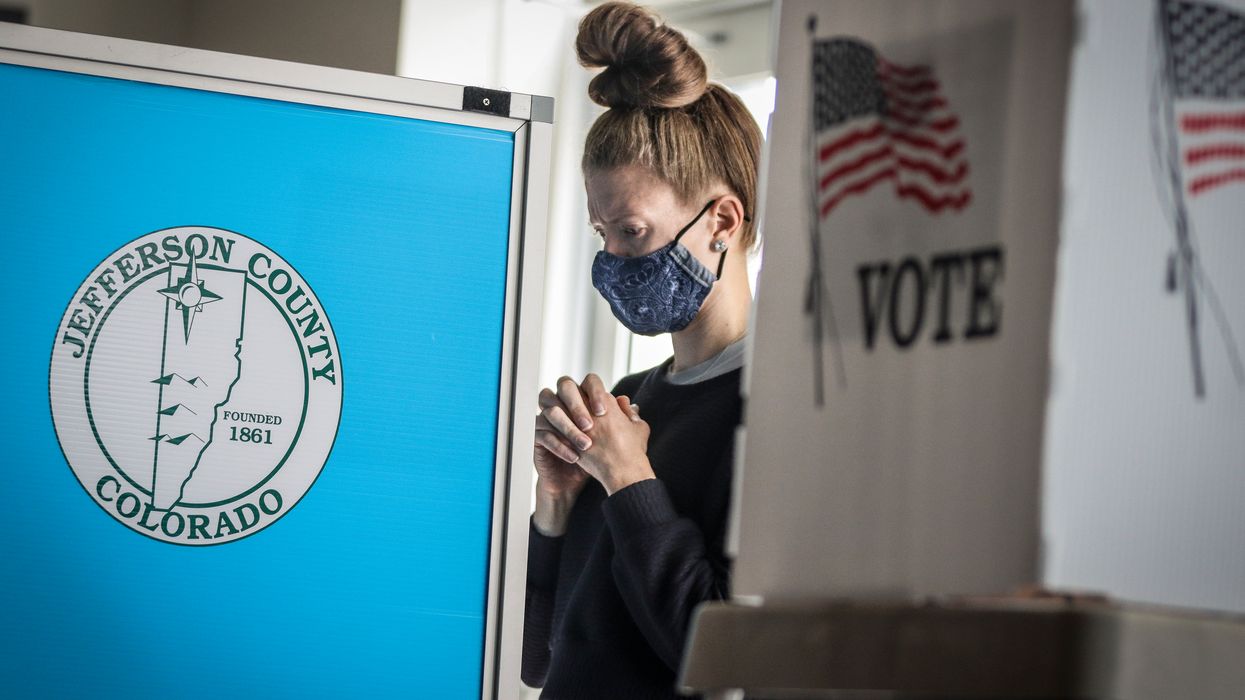Colorado will remain committed to pledging its electoral votes to the national popular vote winner, just as soon as enough states decide the outcome do the same.
Last year the state enacted a law under which it joined the National Popular Vote Interstate Compact, which 14 other states and D.C. have embraced. Voters statewide narrowly decided Tuesday to affirm that decision. The referendum got 52 percent of the vote in complete but unofficial returns — a winning margin of about 135,000 votes out of 2.8 million cast.
This is a small, but not insignificant, win for reform advocates who say doing away with the Electoral College in favor of the popular vote will boost turnout and civic engagement because more Americans will feel their vote matters.
Being part of the pact means promising all the state's electoral votes to the presidential candidate who gets the most votes nationwide — but only once states forming an Electoral College majority sign on. That magic number is 270. The other places, all reliably Democratic, have a combined 187 votes, so the deal is a long way from kicking in.
Colorado has 9 electoral votes but is likely to gain a 10th next year due to population growth. It has switched from red to purple to pretty blue in recent years. Joe Biden carried the state Tuesday by about 15 points, the third straight win for the Democratic nominee but the largest winning margin from the party in modern times, and the Democrats also took a Senate seat from the GOP.
Considering two of the most recent presidents — George W. Bush and Donald Trump — got elected despite finishing second in the popular vote, proponents say the compact assures whichever candidate is the most popular nationwide is the winner.
Transitioning out of the Electoral College system and into the popular vote system via the compact is completely legal, its advocates say, and doesn't require clearing the high hurdles of amending the Constitution. But GOP leaders nationwide fear this switch would disadvantage their party by turning all voting power over to blue cities.
Opponents of the pact in Colorado also argued that its adoption would assure presidential campaigns are conducted entirely in the metropolitan areas of the biggest states — meaning the vast rural reaches of the state would get ignored.




















Trump & Hegseth gave Mark Kelly a huge 2028 gift